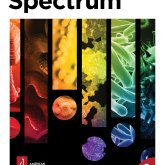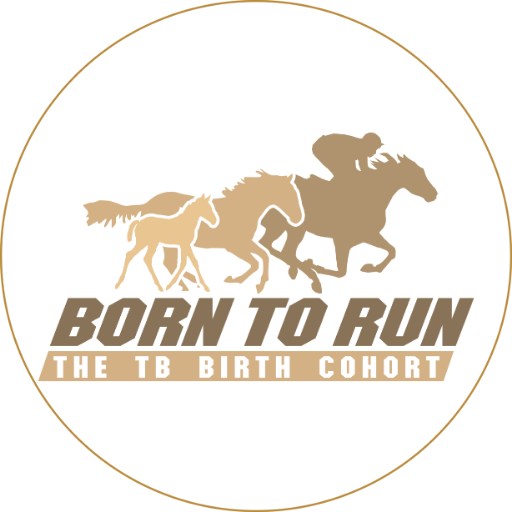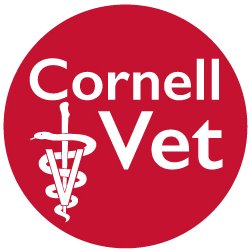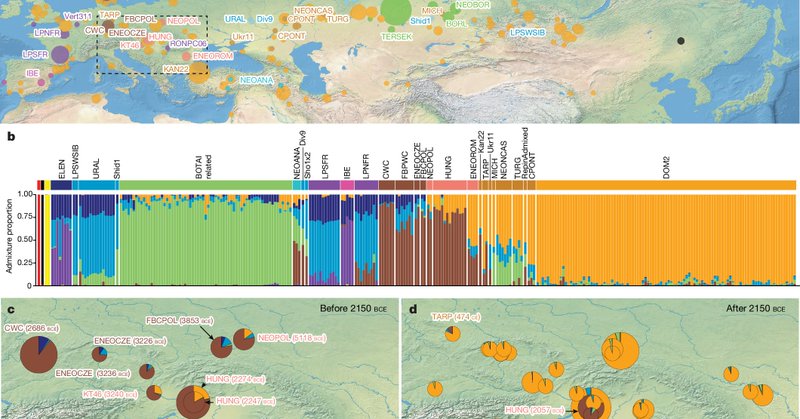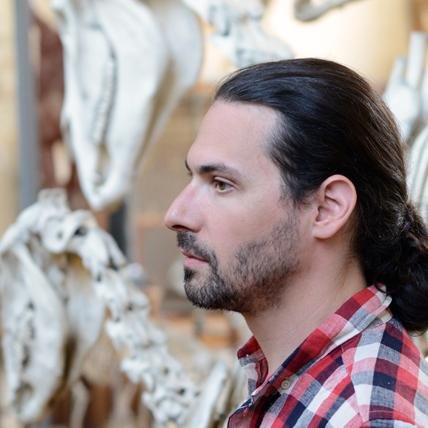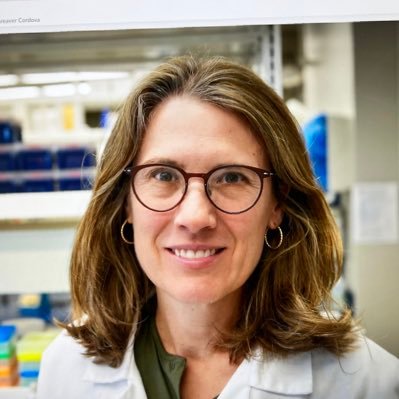
Mandi de Mestre
@mandidemestre
Followers
306
Following
505
Media
31
Statuses
394
Professor at Baker Institute for Animal Health, @cornellvet, Equine Pregnancy Laboratory, fascinated by placentae and genetics, opinions my own
Ithaca, NY
Joined September 2012
Delighted to share our latest publication in PNAS by @Shebl_Salem @jessroach8 Don Miller showing horse and human miscarriage remarkably similar; ~60% aneuploid. Details👇🏼 possible w vet community @bakercornell @RoyalVetCollege @tamuvetmed @ucdavisvetmed
0
6
19
Dr. de Mestre's Equine Pregnancy Lab at @bakercornell @cornellvet is partnering with @Hanovershoefarm to study early pregnancy loss in the Standardbred mare. "Hanover Shoe Farms is a welcome partner for the collaboration," said Dr. de Mestre. Learn more ⬇️ https://t.co/0yZWZcBSoH
0
1
1
I’m currently advertising a 3 year funded PhD studentship opportunity in my laboratory. Project is on ovarian ageing. Please see below link for further project info and details on how to apply. RTs appreciated! https://t.co/QZBZj7g3jj
@SRF_Repro @lifecourse_KCL
kcl.ac.uk
The ovary ages faster than other organ, yet the mechanisms remain poorly defined. This project will elucidate how ovarian-hormone interactions change during ageing, via multiomics and mouse…
1
52
62
Exciting research on genome sequencing of equine coronaviruses from the Goodman Lab. https://t.co/iPjuam5Qk1
journals.asm.org
The Betacoronavirus subgenus Embecovirus contains coronaviruses that not only pose a health threat to animals and humans, but also have jumped from animal to human host. Equids, such as horses and...
0
2
2
Beautiful imaging equine placenta
Pleased to share our latest paper 'Convergently evolved placental villi show multiscale structural adaptations to differential placental invasiveness' in @RSocPublishing #BiologyLetters out now! #placenta #evolution @UoS_Medicine @sotonbiosci @UoSMedia
https://t.co/n0dU8CPC89
0
0
3
Reproductive medicine has long sought an animal model for human miscarriage. Horses could fill that gap, starting with an analysis of chromosomal abnormalities in conceptuses from failed horse pregnancies before 55 days of gestation. In PNAS: https://t.co/LX8m1ILCIg
1
3
10
The Veterinary Investigator Program Students @bakercornell recently presented their summer research. Congrats to Jessica Palmeri (@DrSarahCaddy lab), Stacy Ma (Evans lab), & Anna McKane (Das (BMS) & @mandidemestre labs)! More info on program below. https://t.co/rHXWVN3Yvg
0
3
4
Recordings of last weeks Gerald Leigh memorial lectures are now available online, including @mounceyvet discussing findings from our work in her talk on raising the foal for optimal future performance. https://t.co/YanXO6SUsL
youtube.com
0
2
1
Missed our last Cornell Equine Seminar or just want to watch it again? Check out the video recording of “A Veterinary Technician’s Point of View: Caring for Your Horse at Cornell’s Equine Hospital," presented by #CornellVet LVTs Jlynn Meyer + Mikaela Frost. https://t.co/kf8UVIVab9
0
1
1
Delighted to share our latest research investigating determinants of Thoroughbred yearling sales price, available free open access in @Vet_Record online. @LevyBoard @TheTBA_GB
@VEEPH_RVC
https://t.co/2UnWWtXQL4
bvajournals.onlinelibrary.wiley.com
Background Industry-level figures suggest that up to two-thirds of Thoroughbred breeding operations in the UK are unprofitable and that around half of sales transactions of Thoroughbred yearlings,...
0
2
3
Three things I love all in one paper - genetics, horses and history! Congrats @LudovicLorlando and team. Recommended reading. https://t.co/GoRBPY6s8y
nature.com
Nature - Analyses of 475 ancient horse genomes show modern horses emerged around 2200 bce, coinciding with sudden expansion across Eurasia, refuting the narrative of large horse herds accompanying...
4 revisions later & almost a year in the making, our latest work on horses is finally out! @HorsepowerERCUK @CagToulouse @CNRSecologie @CNRS_Toulouse @CNRS @UT3PaulSabatier Widespread horse-based mobility arose around 2,200 BCE in Eurasia https://t.co/bh1RucfIet 1/2
1
3
5
Our 2023 annual report is available online. The Baker Institute publishes an annual report to keep our donors, Advisory Council members, and friends of the Institute up-to-date on our work. Click the link below to read more. https://t.co/DTE9drVDxh
0
2
3
Surgeons in Japan have transplanted kidney tissue from one rat fetus to another, while the recipient was still in its mother's womb
3
39
105
Check out our latest colleague @das_arunika who does some very cool science, we are very excited to collaborate with you!
In this Q&A, learn more about Arunika Das (@das_arunika), asst. prof. of biological sciences at #CornellVet! Dr. Das focuses on cell biology + genetics, using interdisciplinary methods to address challenges in reproductive aging + developmental epigenetics. https://t.co/PlEp5AX7su
0
1
7
Horses have always been a part of Dr. Aimee Colbath’s life. From United States Pony Clubs as a child to serving as an equine surgeon at the Cornell University Hospital for Animals, her love for horses has informed her talents as a veterinarian. #CornellVet
https://t.co/LTs6cdpqDe
0
2
8
Our meta-analysis of single-cell RNAsequencing in human placenta is out! #placenta #reproductiveresearch
#scrnaseq
https://t.co/QNAjcDzv7K
academic.oup.com
AbstractBACKGROUND. With increasing significance of developmental programming effects associated with placental dysfunction, more investigations are devote
1
1
3
Join us for our next Cornell Equine Seminar, "Equine Gastrointestinal Parasites," presented by Dr. Elisha Frye, assistant professor of practice at #CornellVet. 🐎 @ccecornell @cornellansci @cornellvetlab ➡ Mar. 19, 2024, 6-7PM ET via Zoom. Register: https://t.co/MtTXgQjIZj
0
3
9
The next step in our studies unravelling how genetics contributes to pregnancy loss work led by super duo @jessroach8 @CharlotteShilt4 @RoyalVetCollege colleagues, collaborator Terje Raudsepp. Inbreeding levels associated with mid to late but not early pregnancy loss. More 👇🏼
Some 12-17% of equine pregnancies are lost from conception through the end of gestation 11 months later. @mandidemestre's research, which was recently published in @EVJltd, set out to better understand this problem using genetic approaches. More below:⬇️ https://t.co/CXm0xg2aN5
0
1
8
Did you know…equine allantoic umbilical cord appears to set its length as early as 100 days but the amniotic cord continues to lengthen to 200 days but not much beyond then? Lovely work led by @jessroach8 describing the normal UC across pregnancy
beva.onlinelibrary.wiley.com
Background Excessive umbilical cord length (UCL) is associated with equine pregnancy loss. However, a lack of UCL reference values makes it difficult to define excessive UCL. Further, factors...
0
1
5


